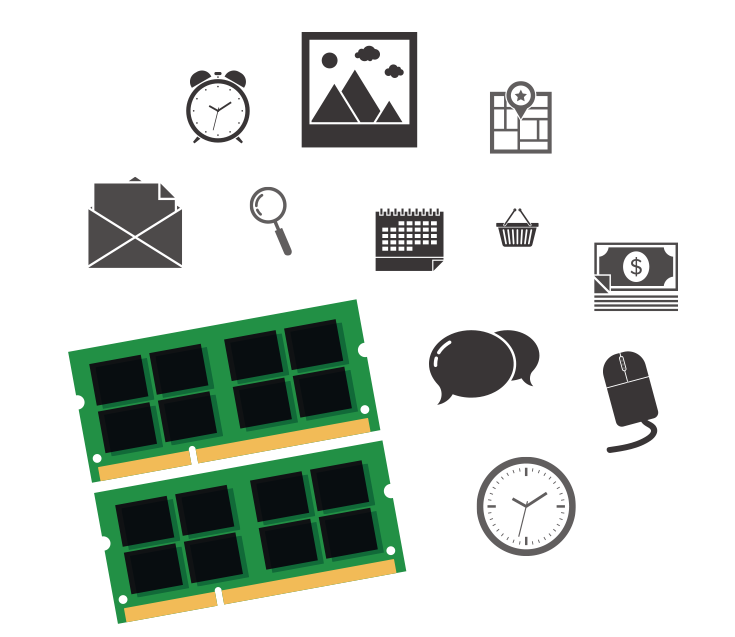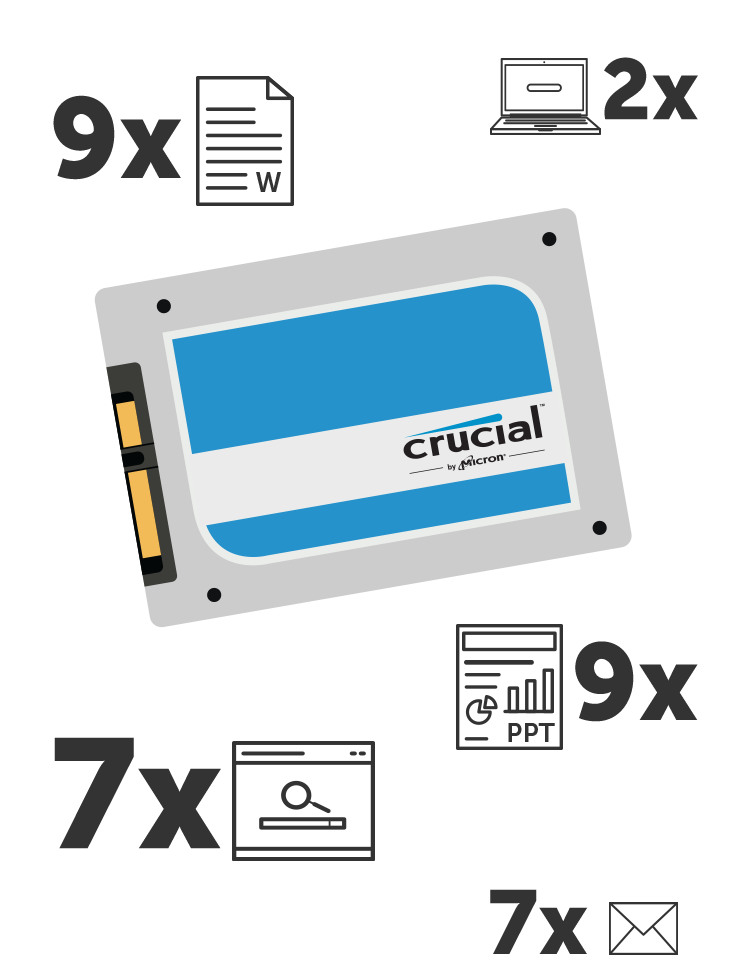How to Fix a Slow Computer
Start with a Memory and SSD Upgrade
When your computer begins to slow down, and unresponsiveness and long load times become the norm, what’s the best way to solve the problem? The minutes you’re losing matter, and you don’t want to spend lots of time and money to solve the problem – you just want a computer that works as it should. Fixing a slow computer can seem like a daunting proposition, but it’s not; if the problem isn’t a virus or malware, just add more memory and an SSD. These adjustments (which don’t require advanced computer skills) can be done in minutes and instantly deliver lasting results.
Why It Works:
The Role of Memory and Storage in Your Computer
Memory and your storage drive (either a hard drive or an SSD) are small components inside your system, but you use them to do almost everything. Every time you press the power button, double-click an icon, save a document, move your mouse cursor, or hit a key on the keyboard, you're using memory or storage. When your memory or storage aren't able to keep up, you end up waiting on each and every one of these actions, which adds up.
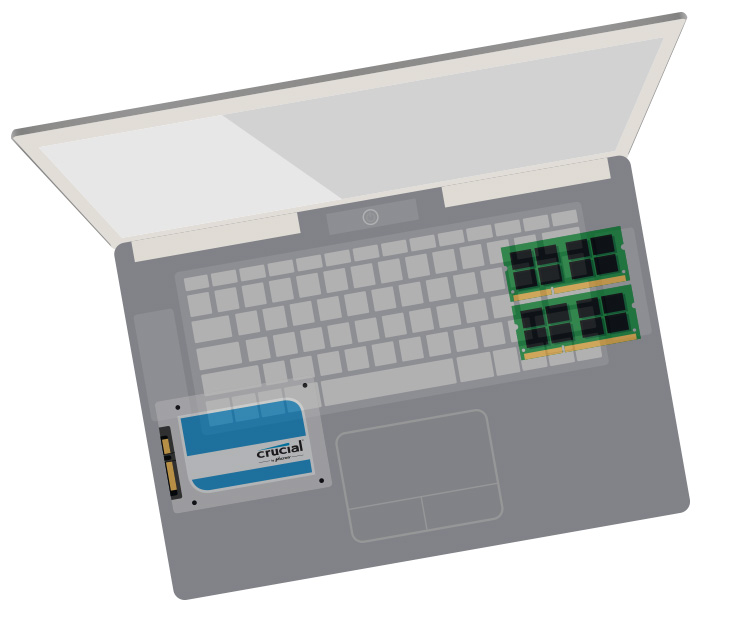
How Upgrading Your Memory Speeds Up Your System
Every time you do one of the following things, you’re using memory – and that’s why you need as much of it as possible!
- Moving your mouse cursor
- Opening and surfing between tabs in your Internet browser
- Typing and composing an email
- Creating a spreadsheet
- Editing photos or videos
- Playing a game, listening to music or watching a video
- Multitasking between multiple apps
Memory is the pool of resources your system uses to get things done. The more memory you have, the more resources your system has at its disposal, meaning it can do things faster – and handle more things at once.
How Replacing Your Hard Drive with an SSD Speeds Up Your System
Loading files and apps stored on an SSD is like flipping a light switch – it's almost instant. When performing everyday storage tasks, SSDs are on average 6x faster than hard drives.*
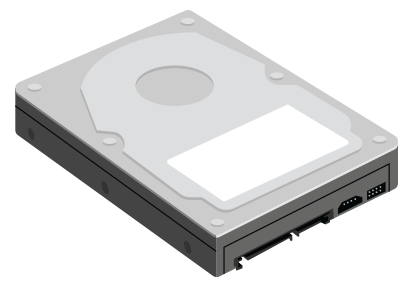
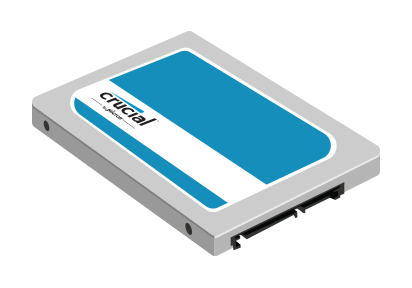
The new technology in SSDs is what creates the major difference in performance. Since SSDs access data on cutting-edge flash memory chips rather than on outdated spinning platters, they operate at faster speeds, consume less power, and are more durable than hard drives because they don't rely on small moving parts that are prone to failure.
The Bottom Line
The time spent waiting on a slow computer is frustrating – and it adds up. You don’t have to make monumental changes to fix a slow computer. Just a few small, sustainable changes that deliver immediate and lasting results. The time you’re losing matters – get it back with a Crucial® memory and SSD upgrade.
©2015 Micron Technology, Inc. All rights reserved. Information is subject to change without notice. Crucial and the Crucial logo are trademarks of Micron Technology, Inc. Microsoft, Windows, PowerPoint, Excel and Outlook are either registered trademarks or trademarks of Microsoft Corporation in the United States and/or other countries. Intel and Intel Core are trademarks of Intel Corporation in the United States and other countries. All other brand or product names are trademarks or registered trademarks of their respective holders. Neither Crucial nor Micron Technology is responsible for omissions or errors in typography or photography.

